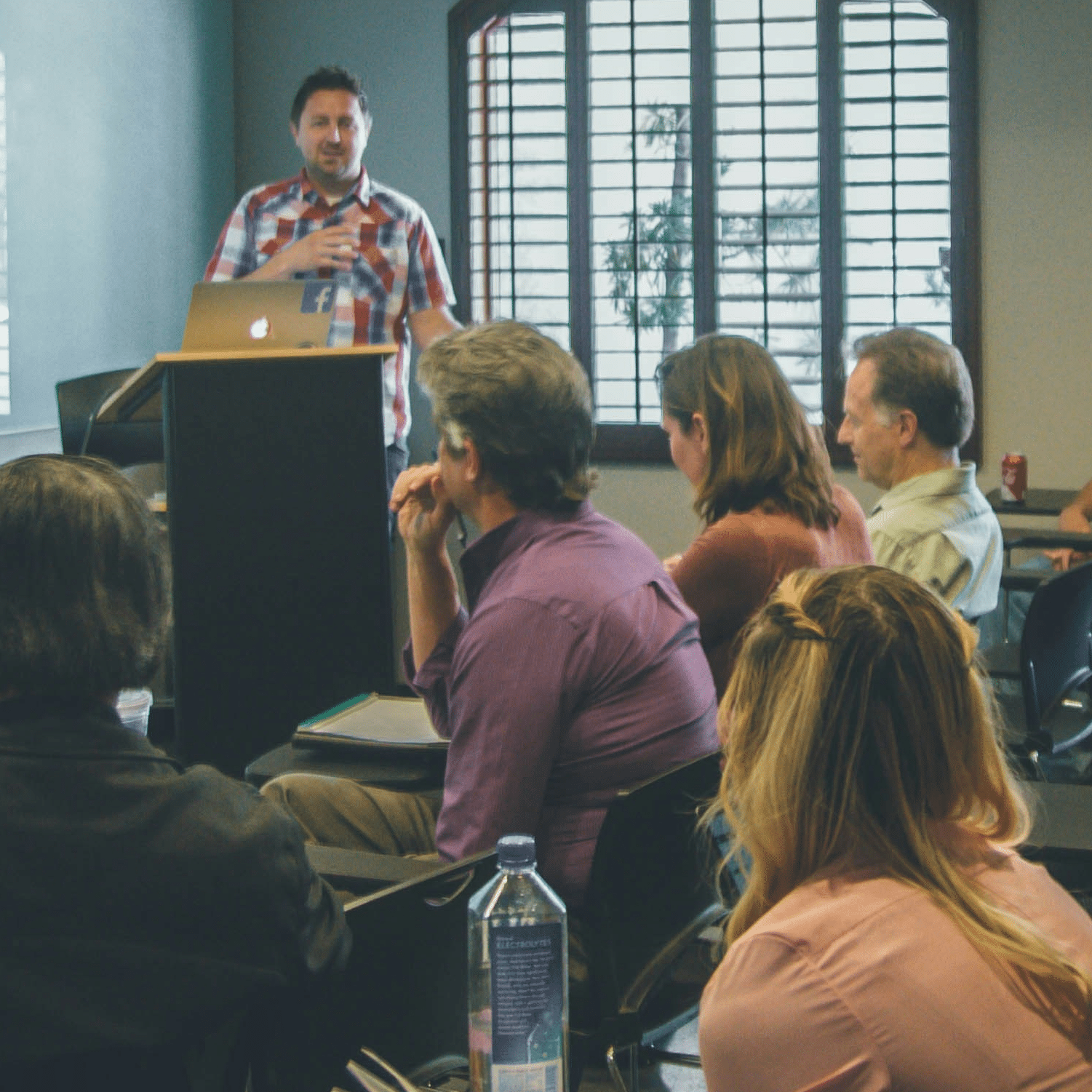Contents
Warning: stereotypes about the attitudes of generations can lead your company woefully astray. For example, we asked adults under 30 to predict if/how adults over 60 would interact with social media. The younger adults got it wrong in many ways.
Summary
Because so many tech businesses and teams are led by young people, generational stereotypes create a significant risk of bad business decision-making. A human insight system can help to debunk those stereotypes and enable better decisions. As an example, we looked at stereotypes versus reality in social media use by older adults.
Tech use by older adults is often stereotyped
Today’s 60-somethings have had decades of potential internet and, in some cases, even social media exposure. However long-standing stereotypes about older adults and technology are hard to break, something that is reflected in their media portrayals. According to a 2019 AARP report, “adults over age 50 are presented as dependent and disconnected,” while Alive Venture’s 2022 ‘Growing Older, Better’ insights report explained that “older adults lack adequate representation, and on the rare occasions when they are included in ads, films, television shows, or social media, they are often stereotyped in ways that portray aging as extremes.”
We decided to explore those long-standing stereotypes by studying how a sample of 10 older adults interact with social media, specifically YouTube and Facebook, versus how a sample of 10 younger adults expected them to behave. The results provided us a snapshot of how divorced reality and expectations can become around this topic.
Study results: Many older adults are more tech-savvy than is generally believed
The younger adults incorrectly assumed that few older adults frequently watch YouTube
Most of the younger adults were skeptical of our ability to even find older adults who use YouTube on a frequent basis (see chart A below). However, they were less skeptical of our ability to find older adults who used Facebook (see chart B below). In reality, we had no difficulty finding 10 adults over 60 years old within the UserTesting contributor network who used both YouTube and Facebook on a frequent basis.
Here’s what they told us:


Younger adults failed to anticipate the diversity of older adults’ social media use cases
In terms of what younger adults expected older adults to be doing on Facebook, staying in touch with friends and family was the most popular response. A few younger adults mentioned some entertainment use cases but they primarily assumed that it would be a fairly contained experience in which older adults “simply watch the feed.” In reality, our sample of older adults used Facebook for a variety of purposes at the individual and group levels. Several were members of Facebook groups, including a contributor who co-manages a Minnesota Vikings fan club with his son. We also heard from several older adults who use Facebook for business purposes. Keeping up with local events and leveraging Facebook marketplace were also referenced as use cases by multiple older adults.
In terms of what younger adults expected older adults to be doing on YouTube, viewing do it yourself (DIY), cooking/recipe and gardening content were common responses. Some of the younger adults also believed that older adults “don’t search (for content),” “happen to not do too many things,” and are unlikely to view “anything entertaining” In stark contrast to those latter expectations, all ten older adults reported having used the YouTube search function and referenced a wide range of entertainment use cases for YouTube. As an example, one of the older adults told us about his interest in watching gambling content on channels such as Vegas Low Roller. Other YouTube content areas of interest to multiple older adults in our sample included fitness and professional development.
What the younger adults got right
However, some of the younger adults’ expectations were in fact met. For instance, most of the older adults were using Facebook to stay in touch with family. We also found that DIY, cooking/recipe and gardening YouTube content was of interest to several of the older adults. In other words, the younger adults were not entirely off base with their expectations around older adults’ use of social media. Instead, it was the blanket statements, steeped in stereotypes, that stood out as particularly inaccurate.
Conclusion : Your stereotypes put your business at risk
Many long standing assumptions about older adults’ relationships to technology and social media are growing outdated. Given that future generations of older adults will have even longer-term exposure to the internet and social media, these stereotypes are apt to become even more inaccurate. Of course, older adults may continue to have unique technological needs and knowledge of emergent social platforms. According to AARP’s 2022 Tech Trend and the 50-Plus report, “the overarching complaint (among older adults) is that tech is not designed with older adults in mind due to design that is too complex, poor user experiences, and insufficient training materials.”
Regardless, it’s worth acknowledging that, in the words of Alive Venture’s 2022 ‘Growing Older, Better’ insights report, “as the world has shifted online, so have older adults” and “there is an opportunity to meet them where they are increasingly socializing, shopping and consuming content online.” Business leaders from younger generations who assume, like many of the contributors under age 30 that we heard from, that their grandparents are representative of the broader older adult population may risk discounting a population with massive purchasing power. As Vaughan Emsley’s 2020 article in Harvard Business Review put it, “Don’t Underestimate the Market Power of the 50+ Crowd,” who “are responsible for more than half of consumer spending in the United States.”
A note on methodology: Study Participants
- 10 older adults based in the United States and United Kingdom., ages 60+, who identified as a mix of male and female and reported that they used Facebook and YouTube on a frequent basis
- 10 younger adults based in the United States., Germany, India, Netherlands, Philippines, and United Kingdom ages 18-28, who identified as a mix of male and female
Photo by Nourdine Diouane on Unsplash
The opinions expressed in this publication are those of the authors. They do not necessarily reflect the opinions or views of UserTesting or its affiliates.







